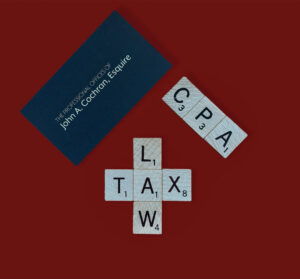Every year, the IRS seems to get just a little farther behind in getting tax refunds back to people. Throw in the processing of Economic Impact Payments and you’ve got yourself a royal mess. In January, the Treasury Department warned taxpayers to expect massive delays in processing of your tax returns this year. That’s just great, right? But…relax! Below we offer some tips on how to get your cash back as soon as possible.

File ASAP
The early bird gets the refund faster. If you put your return in the queue earlier, there will be fewer returns ahead of yours to process. Keep your files organized and ready to go. If you haven’t gotten organized yet, make it a priority. The IRS is still saying they’ll strive to process refunds within 21 days of receipt. And that theoretically can happen for you if you file your return early and don’t raise any red flags.
File Electronically
To expedite your tax refund process, move away from paper submission. Filing paper returns requires time-intensive, manual processing. To ensure a smoother process, file electronically with direct deposit to avoid delays in process, receiving refunds, or notices from the IRS. More than 90% of 160 million people who file taxes submit their returns electronically. You can also check the status of your refund on the IRS’s Where’s My Refund? page.
Have Documentation for Everything
Whether you file a simple W-2 each year or a complicated small business owner return, have documentation for everything. Have your documentation saved electronically for easy access should you be asked to provide proof of anything in your submission. Any questionable numbers will increase your odds of an audit. Make sure the numbers match on the forms before you submit your return. Anything you’re unsure about leads into our next recommendation…
Don’t Guess, Ask an Expert
Even if you think you have a simple preparation process, rules change all the time. If you can’t easily locate an answer to your question, don’t just guess at what to do. Take the time to ask an expert. Even the big online processing companies have an option to connect with a CPA. The small fee for a consultation could end up saving you thousands in the long run. If you have an especially complex situation, your best bet is to enlist the help of an experienced tax attorney.

Exercise Patience
Fun fact: the IRS has been running with the same number of staff since the 1970s, despite the American population increasing by 60% since then. Nearly 75% of American taxpayers expect a refund each year, so you’re not alone. Many people count on their tax return to fund vacations or use it pay down debt. However, depending on those refund checks coming in by a certain time can backfire on you. As of December 31, 2021, six million people were still waiting for the IRS to process their 2020 returns. As frustrating as this delay is, there’s nothing you can do.
In conclusion, we hope this blog, Expect Massive Delays in Processing Your Tax Return This Year helps with your tax preparation plans. Need help getting your taxes ready or have a question? Our experienced tax professionals can help you minimize any taxes you owe and ensure you comply with all applicable laws. Complete our online form or call us today at 724-216-5180 to learn more.












